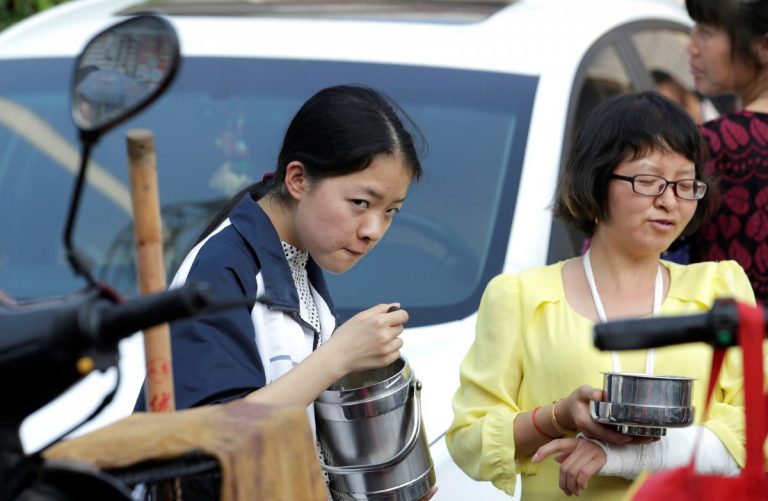
The Gaokao has been named one of the toughest examinations in the world.
For a spot in one of the country’s 2,200 universities, acing the Gaokao is an achievement every student in China must unlock. It is widely accepted the annual entrance exam not only determines the individual’s university ranking, but their entire course in life.
Students spend many years preparing for the Gaokao, with many sacrifices, extra classes and tuition along the way. Some parents even quit their jobs to help their children succeed.
But a high score in the exam doesn’t necessarily guarantee success.
A certain number of places are allocated for every university and competition is fierce, with the Gaokao sifting the very best from the just plain good. The strict and rigorous system has received plenty of criticism, but has remained the only method to test China’s students for nearly 70 years now.
One student who endured the Gaokao – not once, but twice – is Bing Bing Han, a 26-year-old who completed her undergraduate study in Lu’an, China, and obtained her master’s degree in England. She currently works as a professional interpreter.
Life didn’t always look so bright for Han, however. She didn’t score well enough in her Gaokao and was forced to make a choice: miss out on university or take time out to repeat the exam.
She chose the latter. Failure to do well in the exam leads to shame upon the family name.

A parent prays for her child’s success in the Gaokao. Source: Reuters
“I was very sad. My parents were heartbroken. They felt ashamed in front of friends and family because their children got accepted into good universities, and I didn’t.”
Motivated by this, Han enrolled in a school devoted entirely to helping repeat students succeed.
“You wake up at 5am and go to bed at 3am. You get about two hours of sleep. From morning to evening, you have about 10 classes. You restudy everything you learned in those three years of high school, but concentrated into one year. They basically treat you as a robot with no emotions.”
The intensive classes take on about 50 repeat students, with only about 20 making it into their dream university. Over half fail. Many students can’t take the pressure of the system and leave the school after the first week. Those who stay and push themselves can drastically alter their grades. Han managed to double her mathematics score from a 47 out of 150, to an impressive 94.
Anyone caught having a relationship with another student is removed from the school.
“You can’t fall in love,” Han says.
There are increasing reports of suicide, with students jumping out of buildings during these high-stress periods. Han tells me this almost matter-of-factly.
“One test decides your future,” she says.
“If you are very poor and you don’t have connections, then this is how you can change your whole fate – your whole life.” Her tone is urgent.
The meritocratic system selects students solely on their ability and nothing more. This is one of the positive aspects of the Gaokao. A student who lacks finances or other support can achieve and carve a life out for themselves through their hard work and dedication – a life that is as good as an individual who grew up with more privileges.
However, critics of the system say it relies on rote learning, which according to them serves no real benefit to the individual.
Hannah Liao, a student from Guangzhou, said: “This way of picking excellent students is not entirely the best one. The students who achieve good results could be the ones who are good at taking exams and are better at reciting knowledge.”
Understandably, it can seem a little ridiculous – even almost cruel – to base an individual’s life entirely on the result of a single exam.
Liao continued the exams caused her so much stress that she lost her appetite completely, suffered from insomnia, and even took “IV drips” for concentration.

High school students practice yoga at a schoolyard in Chongqing, China, as they prepare for the Gaokao. Source: Reuters
It is clear the exam – which is set over two days in June and lasts nine hours – is a defining moment for students.
Despite the negatives, Han acknowledges the importance of overcoming adversity.
“You always need to face a big challenge in your life. The Gaokao is that,” she says, introspectively.
“Those who take the Gaokao again probably endure more. Tough people can never be killed. If you go through a tough period in your life, you can always have the courage to take something harsh. It’s a very effective system in that way.”
Effective or not, there is no denying the relief students feel when the Gaokao is over.
“Finishing the Gaokao is like heaven,” Han says.
“You have so much leisure time. And you can fall in love whenever you want.”
Liked this? Then you’ll love these…
China: SAT ban brings good business to travel agencies
China expands might in Africa with plans in transportation, aviation school







